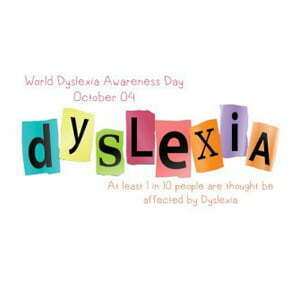
Discussing Dyslexia
WORLD DYSLEXIA AWARENESS WEEK IS FROM THE
5TH OF OCTOBER - 11TH OF OCTOBER 2021

Dyslexia is a learning disability in which people have trouble reading because they can’t recognize speech sounds or understand how they connect to letters and words. Dyslexia, often known as reading disability, it affects the parts of the brain that process language.
Some signs of a dyslexic person are confusing the order of letters in words, reading slowly and/or making errors when reading out loud, visual disturbances such as words appearing blurred and much more…
Dyslexia is a genetic disorder that cannot be prevented or cured, but it can be controlled with the right training and support. It is important to act early in order to overcome reading difficulties. People with dyslexia typically have a more comprehensive perspective on things. They don’t see the trees, but they do see the forest. It’s like if people with dyslexia choose to view the world through a wide-angle lens, while others prefer a telephoto lens, each of which is better at showing various sorts of information.
It is estimated that as many as one in 5 kids and that 80 to 90 percent of kids with learning disorders have it.
People with dyslexia benefit from education because they make greater use of their right brain and have a better understanding of spatial relationships. Dyslexics exhibit exceptional reasoning, inventiveness, conceptualization, and abstraction abilities. They are more inquisitive, imaginative, and perceptive than the ordinary person.
As a result of problems doing tasks that appear to come effortlessly to others, dyslexia can cause frustration, humiliation, anxiety, avoidance, and low self-esteem. It is critical that we educate ourselves about this condition so that we can assist someone who is experiencing difficulties and help make their life easier!

